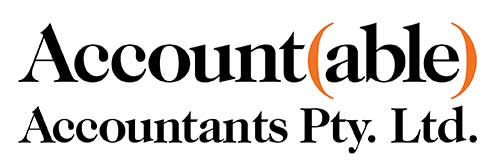How to use your super to buy a property

By Patrick Hoey – FCPA – director at Account(able) Accountants
 You may have heard of people using their super money to buy a rental property – which may seem impossible, however if you have a Self-Managed Super Fund (SMSF), you possibly can.
You may have heard of people using their super money to buy a rental property – which may seem impossible, however if you have a Self-Managed Super Fund (SMSF), you possibly can.
First of all, you need to have an SMSF and have enough funds in there to help pay for all OR part of the property. Usually super funds get “rolled in” to your SMSF from super you have accumulated in other super funds. So, bit like a bank transfer, the funds go from your super you have already, and roll in to your SMSF.
You can also contribute personal funds, or have your employment super get paid in the SMSF, to help increase the available investment funds in the SMSF.
What happens if I don’t have enough to buy a property? Can I borrow?
Your SMSF is allowed to borrow to help purchase a property. However the bank has only security against the property (and not other super assets or you personally), the banks will only offer about 70% of the property price. So the SMSF needs to have the other 30% of the price plus pay extras like stamp duty.
But you will not get loan interest rates like you do if buying property in your own name – currently the interest rates are about 4.95% for residential and 5.2% for commercial property.
There is significant set up costs to borrow in the super fund, as you need to set up a side trust (usually called a ‘bare’ trust) that the asset and loan are placed in, whilst there is a loan. It is still an asset and loan of the SMSF, but for bank security, it needs to sit separately from other assets of the SMSF. The set-up costs of this bare trust, along with a new trustee company, and set up requirements from a financial planner is nearly $5k. And the loan set up costs are about $1,500 for residential and $8,000 for commercial property.
How to buy business premises in your SMSF?
Similar to what is mentioned above, you can buy some commercial premises in your SMSF, like an office, factory, shop, etc. This commercial property can be leased to external parties, or can be leased to your own business. The lease to your business must be at market rental rates, and must be paid on time per the lease agreement.
Can I transfer property I already own into the SMSF?
You can’t transfer (or sell) residential property that you own in your own name into the SMSF, but you can transfer (or sell) a commercial that is in your name into the SMSF.
Main benefits of buying property in super are:
- The capital gains tax is only 10% on the profit you make upon sale (which could reduce to 0% if sold in retirement).
- With the help of borrowing, it allows you to have an investment of say $550k that can go up in value (capital growth), when you originally had only say $250k
- You can combine your own and your spouse’s super together, to help buy a property.
Some disadvantages are:
- When you already own property in your own name, the investments in your super are usually in Australian and overseas shares, so gives you diversity. So if you buy property with super, it puts a high % of all your investments that are in property. Which is why it is usually recommended to also have other investments like shares in your SMSF.
- Borrowing to invest, can help increase your dollar growth, but can also have the opposite affect if the investment goes down, it can magnify your losses (as the loan will still get paid back first).
- Loan interest rates are higher than personal rental loans.
- There is high initial set up costs (which hopefully saves you in long run when saving on capital gains tax).
- You are restricted in what renovations or changes you can do to the property, whilst you have a loan on the property.
Other strict rules re property in a SMSF
- Unless its commercial property, the property in your SMSF you cannot personally rent it or use it, or allow family members to rent it or use it ( the property must be rented at market rates to external parties).
- You will need to ensure extra super contributions or wages super go in to the SMSF, to help pay off the loan.
When considering setting up or investing in a SMSF, you should seek advice from a Financial Planner – this article does not give any express or implied investment advice or recommendations.
By Pat Hoey
